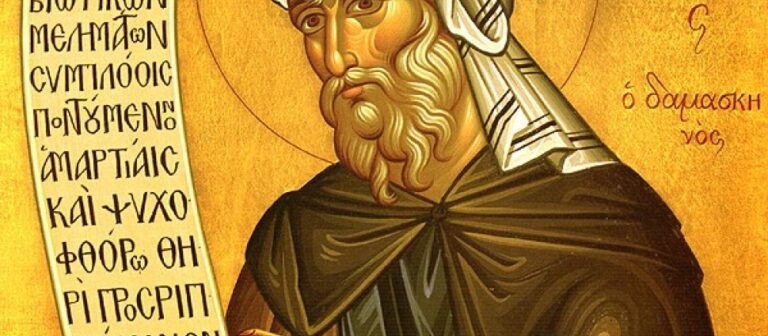
The Ordo Salutis: Sanctification
“For this is the will of God, your sanctification,” (1 Th 4:3)[1] St. Paul writes to a group of mostly non-Jewish Christians in Thessalonica who had formerly worshiped idols and casually participated in a culture steeped in sexual promiscuity. Sanctus is the Latin word for “holy”. The English word “sanctification” uses the verbal form “sanctify”, adding the suffix “-ation”. So, sanctification refers to “being made holy”. Because God is holy, people God brings into relationship with himself must be made holy. If they are to dwell with them, they must be holy, or else destroyed. But what does it mean to be holy, and how are we as creatures made holy?
To be holy means to be set apart, separated from anything that is either profane or merely common. God is holy in an absolute sense, because he is the Creator and everything else is his creation. He is above and beyond all that he has made. We especially think of him as holy, however, in the sense of moral perfection. Reasoning creatures such as angels and humans have become evil and wicked. Even the animal creation sometimes evidences such disorder and confusion — though arguably never the degree of perverse cruelty that humanity has perpetrated on itself through gas chambers, serial murders, abuse, and torture — that we would not have expected to see in the Garden of Eden apart from the serpent who appears as a devious intruder. We would not expect to see, for example, a mother abandon or murder her child, but sadly, such things happen in a cruel world that has forgotten its creator and his wise design for it. God is holy because he is entirely righteous and separate from evil.
For us to be holy means to become separate from evil and given to good. We are “made holy”, or “sanctified” in a few different senses. We are made holy positionally when we are called by God’s word into faith in Christ. “Called to be saints,” the Apostle’s fond address in 1 Corinthians 1:2 and Romans 1:7, is literally “called holy”. Because we are justified and adopted, we are categorically holy to God. Together with this positional holiness is a decisive transition in the orientation of our lives. People who believe in Christ are born of God, made dead to sin and alive to God, washed, sanctified, and renewed in the image of God in knowledge, righteousness, and true holiness (1 John 3:9; Romans 5:21; Eph 2:5; 1 Cor 6:11; Col 3:10; Eph 4:23-24). Author John Murray has called this “definitive sanctification”, because it involves “a decisive and definitive breach with the power and service of sin in the case of everyone who has come under the control of the provisions of grace”.[2]
The concept of definitive sanctification is distinct from the false notion of sinless perfection this side of heaven, because the other complementary way in which we should speak of sanctification is in terms of “progressive sanctification”. The very word “progressive” implies that there is progress to make in our holiness. It is the imperative “be holy” (1 Pe 1:15-16) that follows the indicative “called holy”. To the Thessalonians, once more, St. Paul writes, “that as you received from us how you ought to walk and to please God, just as you are doing, that you do so more and more.” (1 Th 4:1).
This later sense involves our effort and exertion, yielding to the Holy Spirit’s powerful working in us (2 Peter 1:5; Phil 2:12-13). Believers are both to consider themselves dead to sin and alive to God in Christ Jesus, and also to daily, actively die to sin and live to God, not letting the power of sin dominate over them, and presenting themselves and every member of their bodies to God as “instruments for righteousness” (Rom 6:10-13). To the Thessalonians, again, St. Paul writes, “But we ought always to give thanks to God for you, brothers beloved by the Lord, because God chose you as the firstfruits to be saved, through sanctification by the Spirit and belief in the truth.” (2 Th 2:13) Believers are the people of God who are bound to grow more and more into their holy calling from him.
Steven McCarthy is the rector of Christ Church Anglican (South Bend, IN). He earned an M.Div. at the Reformed Presbyterian Theological Seminary (Pittsburgh, PA), and is a Th.M. student at Puritan Reformed Theological Seminary (Grand Rapids, MI). He and his wife are native Michiganders. They have three young children.
[1] Scripture quotations are from The Holy Bible: English Standard Version (Wheaton, IL: Crossway, 2016).
[2] “Extracts from ‘Definitive Sanctification,’ (pp. 277-280, 284) and ‘Progressive Sanctification,’ (pp. 294-296, 299), in The Collected Writings of John Murray, Volume 2,” the Banner of Truth website, <https://banneroftruth.org/us/resources/articles/2011/definitive-and-progressive-sanctification/>. Accessed on March 6, 2020.
























